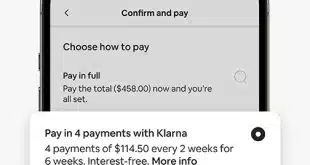When it comes to information about the uncertain future of Chase Paymentech Solutions LLC, the world's largest merchant acquirer, the analysts just weren't taking no for answer. The occasion was processor First Data Corp.'s first-quarter earnings conference call on Friday, during which the company also revealed that it had spent nearly $1 billion to buy prepaid card distributor InComm Holdings Inc. Chairman and chief executive Michael Capellas gave a brief statement about what the likely change in Chase Paymentech's ownership structure would mean for First Data, which owns 49% of the acquirer. Private-equity firm Kohlberg, Kravis, Roberts & Co.'s $29 billion buyout of First Data last September triggered a change-of-control provision that gave 51% owner JPMorgan Chase & Co. the right to negotiate an early end to the current agreement that doesn't expire until 2010 (Digital Transactions News, March 14). That's bad news for Greenwood Village, Colo.-based First Data because of the potential loss of transaction volume and referrals of new merchants from Chase's 3,000-plus bank branches. And then there is a possible tax liability of $200 million or more, according to First Data's quarterly report to the Securities & Exchange Commission filed last week. Despite all that, Capellas said there would be “no material impact” on First Data's pro-forma profits. Chase Paymentech processed 19 billion transactions in 2007 and handled $719.1 billion in bank card charge volume. The quarterly report says First Data now expects the current contract to end some time in 2009. Apart from mentioning the likely early end of the merchant alliance and the profit impact, Capellas said “because our negotiations are ongoing, I can provide no further comment at this time.” But that didn't stop analysts from firing several questions about Chase Paymentech at him and chief financial officer Kim Patmore. Asked, “what does it really mean,” in terms of serving the merchants that would remain with First Data, Capellas noted that Chase Paymentech has two platforms and that First Data would inherit half the accounts and half of the intellectual property. “We will continue to service those customers,” he said. “I think the real take-away here is we know how to do this business, we don't have to go out and re-create any infrastructure to continue to service those accounts.” A Chase spokesperson refused comment. Another question dealt with non-compete agreements to prevent Chase from poaching accounts from First Data after the break-up. Capellas replied that, “he could not possibly comment” on that because of the ongoing negotiations with Chase. Another inquiry dealt with the big tax bill. Patmore said that if the companies are ending a relationship and dividing up assets, “it creates a taxable event.” At that, Capellas cut it off. “I have great sensitivity that this is a hugely important issue,” he said. “We've probably gone as far as we can go on the subject.” Later, he promised that more details would be forthcoming as soon as they could be made public. Meanwhile, First Data surprised analysts with the revelation of the rich price it paid for Atlanta-based InComm: $980 million, plus possibly $250 million more depending on InComm's performance over the next three years. The companies didn't reveal the purchase price when announcing the deal late last month (Digital Transactions News, April 29), and the line of questioning at the call indicated analysts thought First Data's huge debt load?about $22 billion?as a result of the KKR leveraged buyout would prevent it from making a big acquisition. Not so. Financing came from First Data stock and $665 million in cash consisting of $250 million in equity capital from KKR affiliates and $415 from a revolving credit facility. The purchase of InComm puts First Data squarely in the middle of one of the payment industry's strongest growth markets, according to Ed Labry, president of First Data's U.S. operation. He noted that unbanked consumers are big users of prepaid cards and pointed out that linking InComm's 145,000 outlets with First Data's 4.5 million merchant locations could give First Data an advantage over prepaid card rival Blackhawk Network by making InComm's services available to regional and small merchants. “These products through Blackhawk and InComm have traditionally only been in large retailers and groceries,” he said. “We think this is a huge marketplace.” Other first-quarter highlights: ? Without mentioning bankrupt Frontier Airlines Holdings Inc. by name, the first-quarter report and comments at the conference call indicate First Data lost $6 million as a result of the Denver-based carrier's April filing for Chapter 11 reorganization. Frontier claimed that First Data, as its merchant processor, left it no choice but to file for bankruptcy protection by demanding more reserves (Digital Transactions News, April 11). ? The previously announced plans to consolidate data-processing centers and merchant processing platforms should be done by mid-2009. ? Softness in the economy hasn't hurt First Data's merchant business but is affecting its financial-institution customers that use First Data for cardholder processing, according to Capellas. Merchant transactions grew 12% from first-quarter 2007 levels, and merchant-processing revenues and operating profits grew 10% and 8%, respectively. But the financial-services segment, which includes cardholder processing, the Star EFT network and other debit businesses, and the TeleCheck check-services unit, saw flat revenue growth and a 4% decline in operating profits, partly because of price compression in contract renewals. Domestic card accounts on file, however, increased 12% to 638.6 million from 572.5 million a year earlier. Domestic debit transactions processed, including signature- and PIN-based debit card purchases and ATM transactions, grew 4% to 2.85 billion from 2.75 billion.
Check Also
Japanese Fintech PayPay Looks to Enter the U.S. Via a Visa Partnership And an IPO
Japanese fintech PayPay Corp. is preparing a push into the United States through a partnership …





